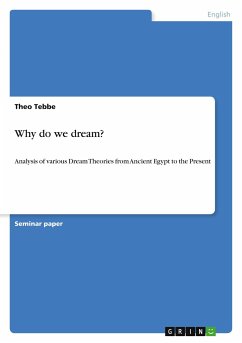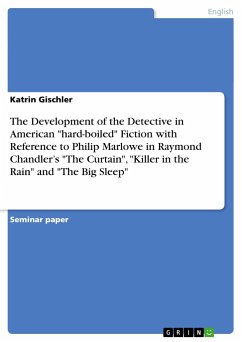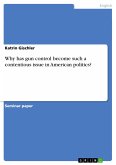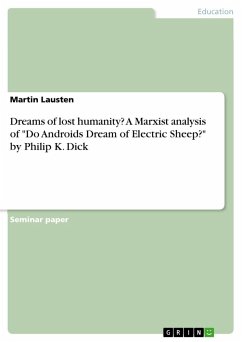Seminar paper from the year 2010 in the subject English Language and Literature Studies - Other, grade: 1,7, University of Osnabrück, course: Forging the American Mind - Literature, Philosophy and the Anticipation of Cognitive Science, language: English, abstract: Dreams can be seen as subjective phenomena that only become realities if we canremember their contents after waking. But how many of you remember your dreams and whydo we dream at all? - The first question can easily be answered: About 80% according to thestatistics (Jouvet 27). The answer to the second question, however, has puzzled humankindfor a long time and even today scientists do not agree on one explicit theory.In my term paper I will present various answers to the question of dreaming given bydifferent dream analysts. At first, I will give a short historical overview on the role of dreamsand how they have been seen in different societies. Whereas the Ancient Egypt and the bibleattributed a supernatural element to dreams, Aristotle introduced the psychological characterof dreams.The main work of my paper will be the analysis of three major perspectives on dreamtheories: The psychoanalytical, the biological, and the cognitive perspective. Freud arguedthat dreams express unconscious desires and underlying wishes which he termed the latentcontent. In contrast, Hobson & McCarley believe that dreams are created because of randomactivity in the brain during a certain state of sleep (REM). More recent studies done byStickgold try to be more precise. He argues that the brain is active during sleep because it triesto identify new connections to learn new things from old memory.In a final step, I will apply the different dream theories on a dream from the movie"Requiem for a Dream" (USA, 2000) in order to outline and compare their main features andto show what a dream can tell us about the personality and the life of the dreamer according tothe three perspectives.
Hinweis: Dieser Artikel kann nur an eine deutsche Lieferadresse ausgeliefert werden.
Hinweis: Dieser Artikel kann nur an eine deutsche Lieferadresse ausgeliefert werden.








